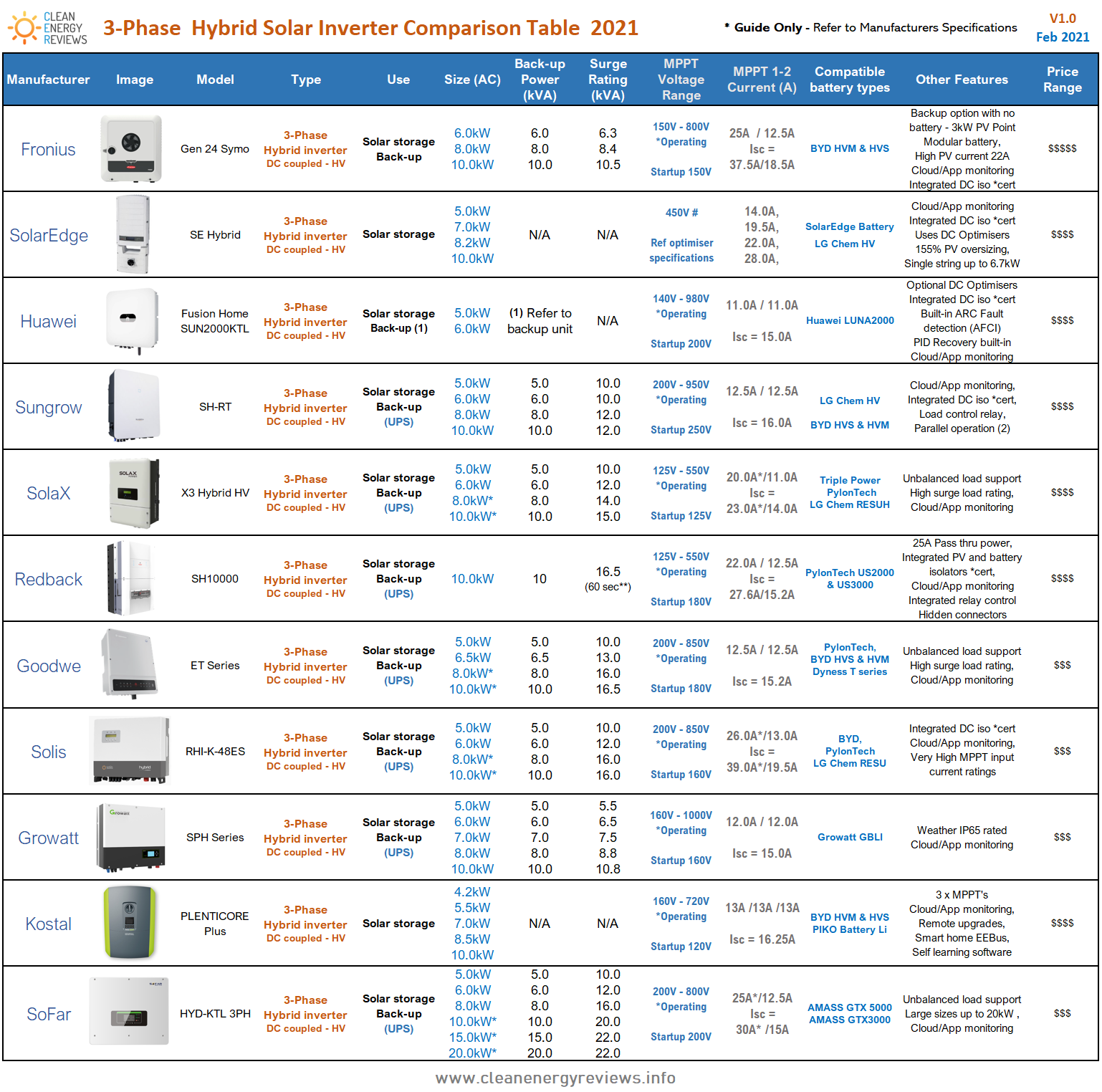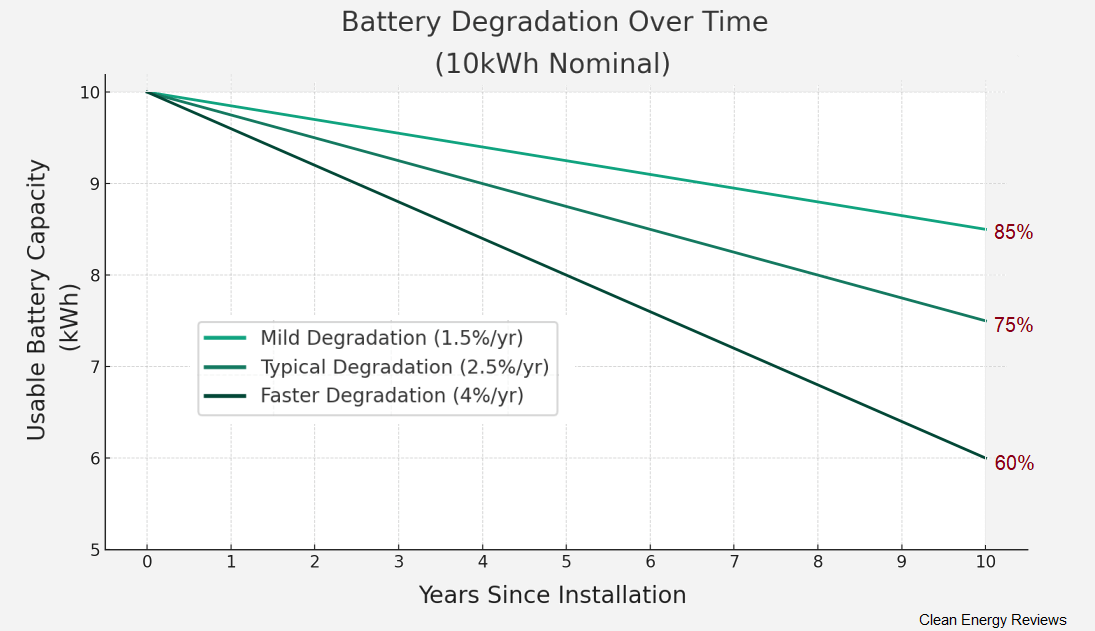3-Phase Hybrid Inverters
Hybrid inverters are the heart of a solar energy storage system and enable homes or businesses to increase the amount of self-consumption of solar energy by storing excess energy during the day. 3-phase hybrid inverters work like a standard 3-phase solar inverter but also contain a battery inverter charger and connection. In order to optimise the available energy, hybrid inverters require either an external energy meter or a CT meter, plus onboard software that can be programmed to determine the most efficient use of your available energy. Learn more about hybrid inverters here.
While most hybrid inverters have limited surge or peak power output, many of the more powerful 3-phase hybrid inverters can supply a considerable amount of backup power in the event of a blackout. However, unbalanced or large single-phase loads may be limited, so check the manufacturer’s specifications carefully. Also, note the backup power rating may be limited by either the battery capacity or output power rating. Note that some hybrid inverters do not have backup power capability, and most are not designed for off-grid solar applications.
Other battery and inverter comparison charts:
3-Phase hybrid inverter Comparison 2021
Description of hybrid solar inverter features
DC coupled HV - Only compatible with High Voltage (HV) battery systems such as LG Chem RESUH or BYD HVS & HVM.
** Surge Power - The maximum surge power rating and duration is dependent on the load type (resistive or inductive) and ambient temperature. Higher temperatures above 40degC will result in a reduced surge power rating.
DC Optimisers = Panel mounted optimisers provide individual panel power optimisation and monitoring.




The comprehensive guide to solar battery and off-grid systems. How to select and size a home solar battery system and how much it may cost you. Also, alternatives to adding batteries and how energy efficiency can save you more than adding a battery.